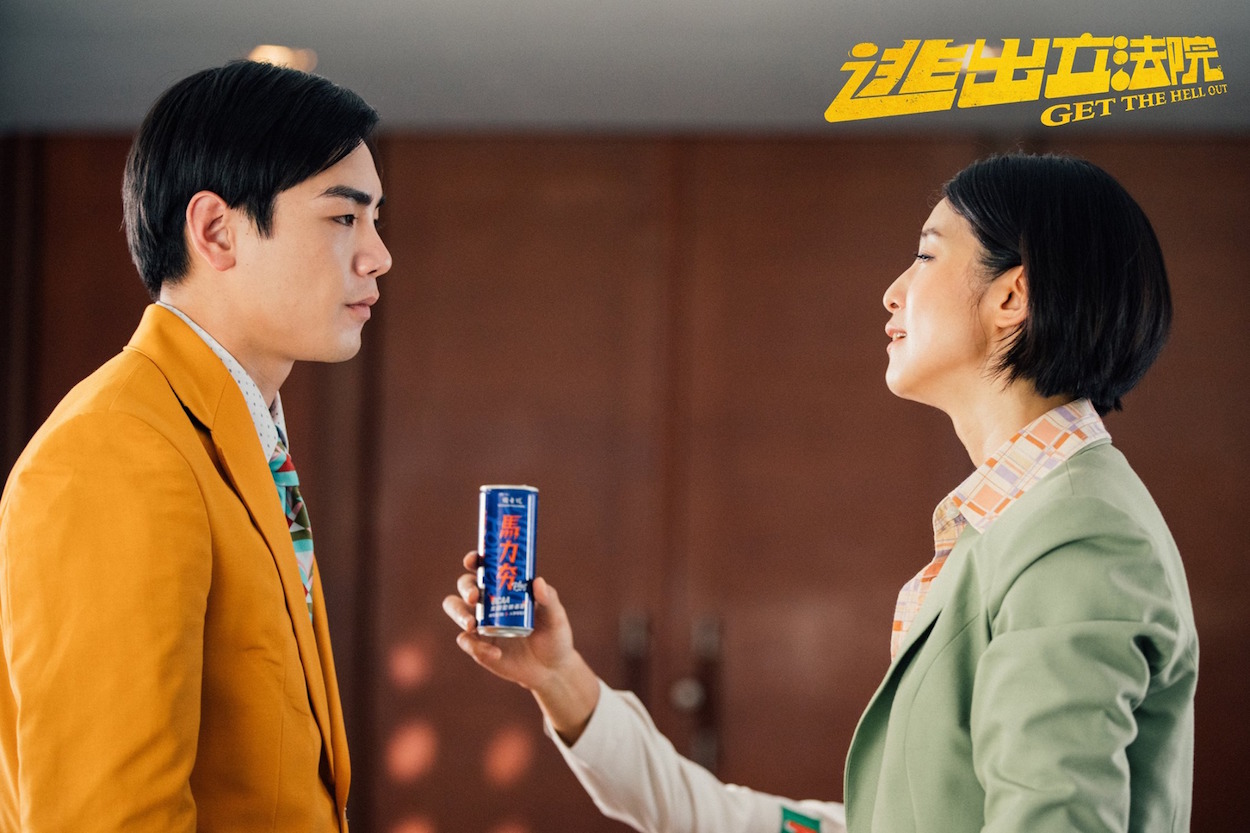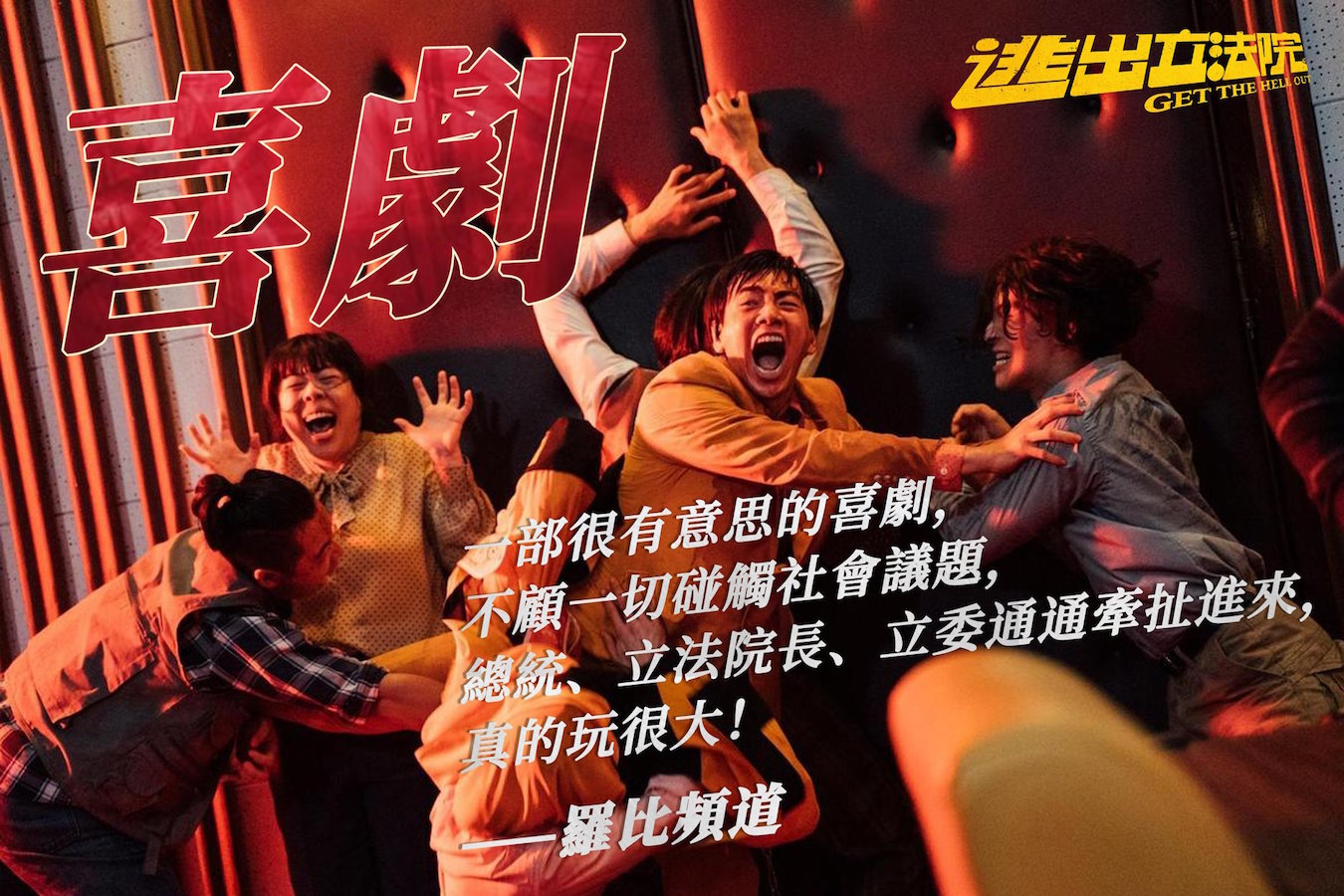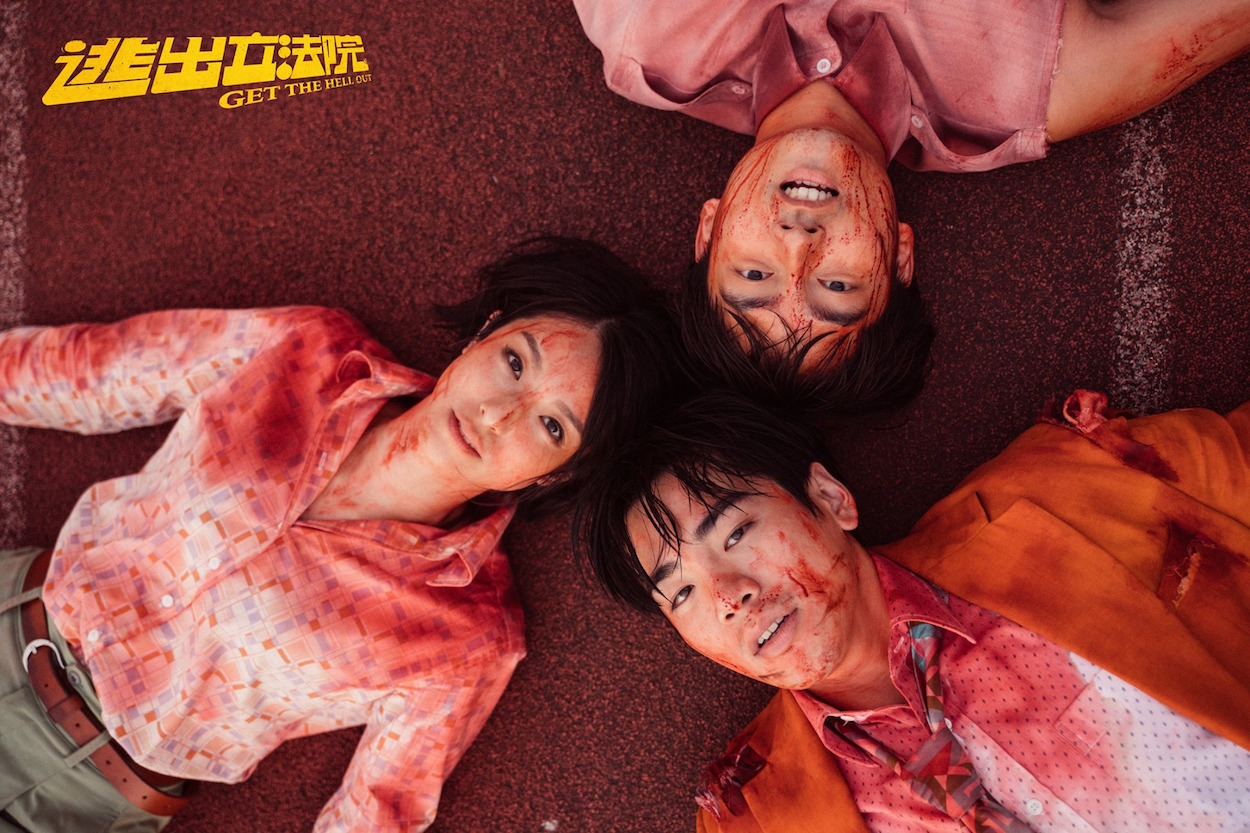by Enbion Micah Aan
語言:
English /// 中文
Photo Credit: 逃出立法院Get The Hell Out/Facebook
GET THE HELL OUT (逃出立法院) is an absurdist zombie comedy that starts out well enough. In fact, the cheeky start was probably the funniest joke in the whole film, as the movie started with these words on the title card: “Friendly reminder. If you experience following symptoms, such as dry eyes, headaches, desires to bite, doubting life, feeling that your eyes have sinned, or any discomfort, please close your eyes. Choosing the wrong movie means having to tolerate it for ninety minutes, unlike electing the wrong person, which would mean to maybe suffer for four years.”

Photo credit: 逃出立法院Get The Hell Out/Facebook
It is a comedy that infuses styles of many contemporary visual schemes, such as video games, influencer videos, tabloid news with paparazzi-style photography, and even karaoke videos. The colorful photography fits its strange and absurdist story. The jokes are quite in line with contemporary millennial sensibilities, featuring comedian Retina (視網膜) from the online news parody program EYECTV.
The strange tale started with a security guard, having been beaten up by a lawmaker, gaining enough public sympathy to win the legislative seat after the said lawmaker’s resignation because of the violent incident. This fight was choreographed, shot, and edited like a video game. The male lead Wang Yowei (王有為), the security guard, and the female lead, the lawmaker, Xiong Yingying (熊穎穎), were classmates in elementary school. When they were kids, Xiong saved Wang from bullies, so to repay his debt—as well as because of the fact that Wang had been in love with Xiong since elementary school—he agreed to run for legislator as a puppet under Xiong’s control.

Photo credit: 逃出立法院Get The Hell Out/Facebook
Xiong entered politics initially to oppose a factory to be built in her hometown. The factory is from a nation cheekily called St. Arian (聖雅利安) whose territorial map spells “Fuck”, perhaps alluding to the fact that Taiwan government’s complete inability to resist anything from the West, “Arian” probably being meant to be “Aryan”. However, after filling Xiong’s seat and agreeing with Xiong to oppose the factory, Wang reversed course, sides with an archetypical gangster villain lawmaker, and agreed to have the factory built, thinking that once he had gained power, Xiong would fall in love with him.
But the factory is responsible for a virus that caused a zombie apocalypse, with the president being the first human to turn zombie. The rest of the movie consists of the main characters and Xiong’s father, who works in the Legislative Yuan as a janitor, and a cast of other characters, trying to get out of Legislative Yuan. In the end, to no one’s surprise, a deux ex machina saved the day, and the deux ex machina was the main character himself all along…

Photo credit: 逃出立法院Get The Hell Out/Facebook
I do not wish to summarize the story longer than this, as, at this point, the reader can surely tell that this story is not supposed to make any sense. The story is rife with in-your-face political commentary. Unfortunately, it’s so in your face that its humour wears thin after the first few political references—these jokes, while funny, are the memes you have already seen on Facebook. As a political satire, it does not aim to be subtle, but rather, it is like a newspaper cartoon, with very over-the-top storylines and characters.
The best of zombie films, such as the classics Night of the Living Day or Dawn of the Dead by George A. Romero, are successful not only as horror films, but also political allegories. Romero’s films achieve what many zombies are not able to replicate—the sense of doom in the story mirrors the political inability of contemporary democratic institutions to resolve important social and cultural problems. Then there are many countless inferior zombie films that achieve the effects of horror films without ever coming close to Romero’s classics in the way they are able to connect the dread depicted in the film to our contemporary situation. But most zombie films today are just exploitation films with no other ambitions other than sensationalism.

Photo credit: 逃出立法院Get The Hell Out/Facebook
Get the Hell Out definitely has ambitions to be more than a standard zombie film, and I must say that it does succeed at some points. The relentless way it tries to incorporate contemporary Taiwanese culture is admirable, even when it falls short of being satisfactory. The energy of the film is at times amazingly explosive, even though the energy did not carry the film all the way. The absurdist story could have been effective—many great stories are absurdist after all, but it failed because it also insists on a conventional love story and an emotional arc. For a first-time director who needed to stretch a small budget, the effort here is respectable, and it is a good film for a night that you’d like to turn off the brain and enjoy some popcorn.
The film might have worked had it just stuck to its guns and gone really over-the-top all the way. In fact, the cartoonish aesthetic would have probably worked better if the film was actually a cartoon, rather than a live-action film. The problem was that ultimately, the film doesn’t want to be serious, but it seems to want the audience to take the political allegory seriously, including blowing up the Legislative Yuan. I understand that I have given away many key plot points from the story, but the story is hardly relevant here—it’s just ninety minutes of what you need to tolerate.



